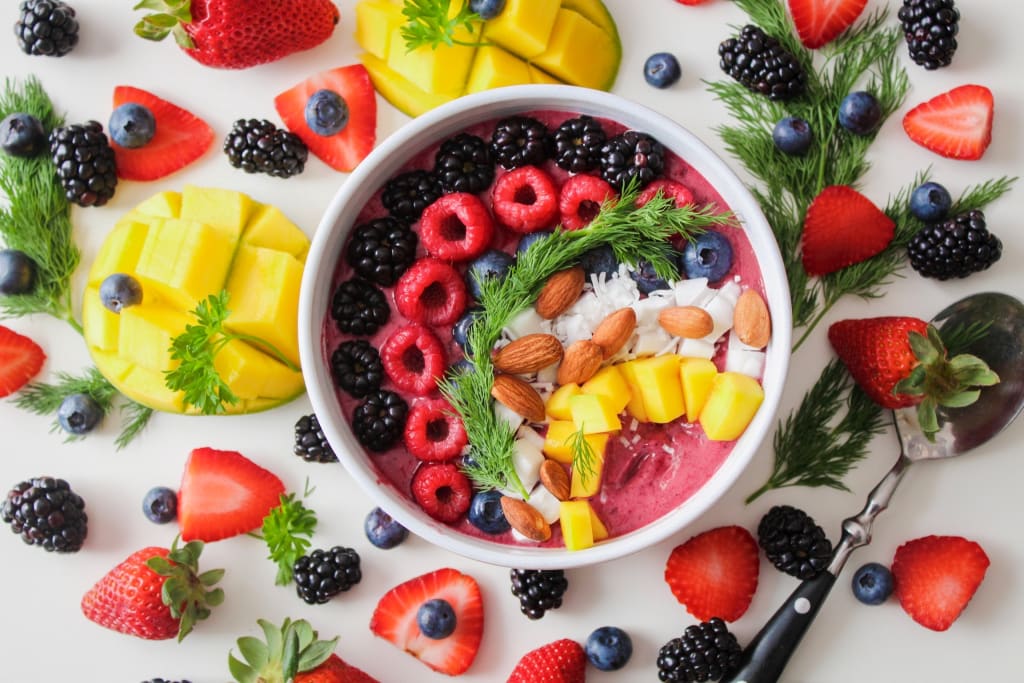
The Best Meal Plan To Lose Fat Faster
Introduction
Article Outline
1. The Importance of Calories in Weight Loss
• Understanding the concept of calories in versus calories out
• The role of a calorie deficit and protein intake
2. Beyond Calories: The Impact of Food Types
• The significance of minimally processed foods
• The thermic effect of food and its fat loss benefits
• Research on whole grain foods versus processed foods
3. Meal Distribution and Fat Loss
• The influence of meal timing on hunger and energy levels
• Front-heavy versus back-heavy distribution approaches
• Personal experiences and benefits of front-loaded meals
4. Choosing Satiating Foods
• The importance of satiety in weight loss
• Comparing different food options based on satiation
• Swapping in more satiating foods into your diet
5. Sample Meal Plan for Effective Fat Loss
• A breakdown of a calorie-controlled meal plan
• Incorporating minimally processed, satiating foods
6. Conclusion
7. FAQs
• FAQ 1: Can I still lose weight while eating processed foods?
• FAQ 2: Should I skip breakfast to lose weight?
• FAQ 3: Are there other satiating foods I can include in my diet?
• FAQ 4: How long should I follow this meal plan to see results?
• FAQ 5: Is it necessary to track calories while following this plan?
________________________________________
Beyond Calories: Unlocking Efficient Fat Loss
If you've watched any of my past nutrition article or even attempted a diet of your own, then you're probably aware of the notion that at the end of the day, for weight loss, it's all about calories in versus calories out. As long as you're eating at a calorie deficit and ideally consuming enough protein, you will successfully lose weight and strip off fat, regardless of what and when you eat. While scientifically speaking, this is true and it aligns with the basic law of thermodynamics, this simplistic model fails to account for how the various foods you put into your body actually go about affecting these two variables.
Research has shown that while calories do matter most, if you want to truly lose fat as efficiently and quickly as possible, you need to go beyond just calories. Paying close attention to the types of foods that make up your calorie intake and how you consume them can make all the difference. In this article, we will explore three important swaps you can make in your diet that take into account these variables and enable you to lose fat faster. Additionally, we will provide you with a sample meal plan that incorporates these principles for effective fat loss.
1. The Importance of Calories in Weight Loss
Before we dive into the specifics of food types and meal distribution, it's crucial to understand the role of calories in weight loss. Calories serve as a measure of energy, and consuming fewer calories than your body needs creates a calorie deficit. This deficit forces your body to tap into stored fat for energy, leading to weight loss. Alongside a calorie deficit, having an adequate protein intake is important for preserving lean muscle mass during weight loss.
2. Beyond Calories: The Impact of Food Types
While calories are the primary driver of weight loss, the composition of those calories plays a significant role in your body's response. Opting for minimally processed foods, such as oats and multigrain bread, instead of their refined counterparts like cereal and white bread, provides several benefits. These less processed foods are not only more nutritious and satiating, but they also have a higher thermic effect of food.
The thermic effect of food refers to the number of calories your body burns while digesting and metabolizing food. Studies have shown.
Studies have shown that the thermic effect of food can vary depending on the food type. Protein-rich foods, for example, have a higher thermic effect compared to carbohydrates and fats. This means that when you consume protein, your body burns more calories during digestion and processing.
Incorporating whole grain foods into your diet can also have a positive impact on fat loss. Research has shown that people who consume whole grain foods tend to have lower body weight and a reduced risk of obesity compared to those who consume more processed foods. Whole grain foods are rich in fiber, which helps increase satiety and may lead to reduced calorie intake overall.
3. Meal Distribution and Fat Loss
In addition to the types of foods you consume, how you distribute your meals throughout the day can also influence your fat loss progress. Research suggests that meal timing and distribution can affect hunger, energy levels, and metabolic rate.
One approach to meal distribution is the concept of front-loading your meals, which means consuming a larger portion of your daily calories earlier in the day. This approach can be beneficial for fat loss as it helps regulate hunger and prevents overeating later in the day. It also aligns with our natural circadian rhythm, where we tend to have higher insulin sensitivity and energy expenditure earlier in the day.
On the other hand, back-loading your meals, where you consume a larger portion of your calories later in the day, may not be as advantageous for fat loss. This pattern can lead to increased hunger and a higher likelihood of overeating, especially in the evening when we are more prone to snacking and indulging in calorie-dense foods.
Personal experiences and anecdotal evidence have shown positive results with front-loaded meals. Many individuals report feeling more satisfied, having better energy levels, and experiencing improved fat loss when they prioritize their calorie intake earlier in the day.
4. Choosing Satiating Foods
Satiety, or the feeling of fullness and satisfaction after a meal, is an important factor in weight loss. By choosing foods that are more satiating, you can reduce the likelihood of overeating and manage your calorie intake more effectively.
Certain foods have been found to be more satiating than others. These include high-protein foods such as lean meats, poultry, fish, eggs, Greek yogurt, and legumes. Fiber-rich foods like fruits, vegetables, whole grains, and beans are also known to promote satiety. Healthy fats from sources like avocados, nuts, and olive oil can contribute to feeling fuller for longer.
To incorporate more satiating foods into your diet, consider making swaps. For example, choose a chicken breast instead of a processed chicken patty, or opt for a salad with plenty of vegetables and protein instead of a sandwich with refined bread. These small changes can make a big difference in managing hunger and controlling your calorie intake.
5. Sample Meal Plan for Effective Fat Loss
Here's a sample meal plan that incorporates the principles discussed above:
Breakfast:
• Oatmeal topped with berries and a scoop of protein powder
• Scrambled eggs or egg whites
• Black coffee or green tea
Lunch:
• Grilled chicken breast
• Quinoa or brown rice
• Steamed vegetables (broccoli, carrots, etc.)
• Mixed greens salad with a vinaigrette dressing
Snack:
• Greek yogurt with a handful of nuts
• Carrot sticks with hummus
•
Dinner:
• Baked salmon or tofu
• Roasted sweet potatoes
• Sautéed spinach or kale
• Apple slices with almond butter
Evening Snack:
Remember, this is just a sample meal plan and can be adjusted according to your personal preferences and dietary requirements. It's important to focus on nutrient-dense foods, portion control, and overall calorie balance to achieve sustainable fat loss.
In conclusion, effective fat loss requires a combination of various factors, including a balanced and nutritious diet, regular physical activity, adequate sleep, and stress management. By incorporating the principles discussed in this article, you can optimize your fat loss journey and achieve your goals in a healthy and sustainable manner. Always consult with a healthcare professional or registered dietitian before making any significant changes to your diet or exercise routine.
I hope you find this information helpful! Let me know if there's anything else I can assist you with.






Comments
There are no comments for this story
Be the first to respond and start the conversation.